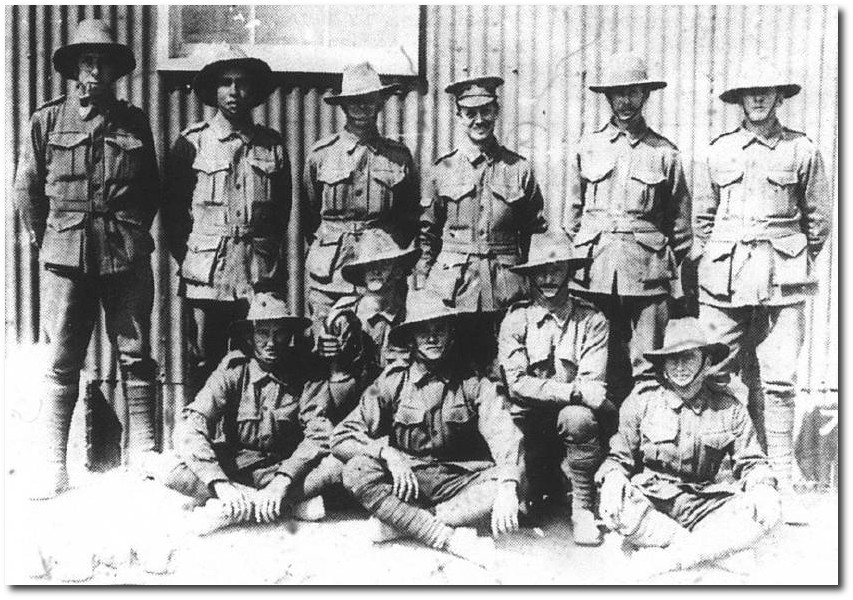
Indigenous Australian, Peter CRAIGIE, 9th Light Horse, 32nd Infantry Battalion
Peter CRAIGIE was born in 1894 to James Craigie station manager, and Bunny Roxborough an Aboriginal woman of the Wankamadla / Wankajutuni tribe. One of 8 children, he was born at Roxborough Downs Station, near Boulia, in North Queensland. In December 1915 Craigie rode his horse over 1,000 km from Birdsville to Adelaide to volunteer for the first AIF.
Initially allotted to the 15th Reinforcements for the 9th Light Horse Regiment, Craigie trained at the newly designated Mitcham camp south east of Adelaide. He married Daisy Cusack just six days before he embarked on board the troopship HMAT Anchises in March 1916, bound for Egypt.
When the ship arrived at Suez, Craigie was admitted to hospital with measles. He was discharged two weeks later and transferred to the 5th Australian Divisional Ammunition Column. They left Egypt in June 1916 and he began his service in France south of Armentieres, in August 1916.
Craigie developed a middle ear infection which saw him removed from the front line and transferred to hospital for treatment early in 1917. When he rejoined his unit he was selected to attend the 5th Divisional Gas School before being appointed Driver on his return to active service. Later in June 1918 Craigie was transferred to the 32nd Infantry Battalion where they were deployed in the front line, east of Amiens, France.
Not long after the armistice, whilst on leave in France, Craigie was struck down with influenza and once again hospitalised, this time in England. He embarked for Australia in January 1919 and returned to his wife Daisy in Birdsville and life as a drover. Together they had 10 children, choosing to raise them in his traditional country of Dajarra, north-west Queensland.
Read more ...
- Service record: CRAIGIE, Peter
- Embarkation roll: 15th Reinf. 9th Light Horse Regiment
- 'He fought for his country' North West Star, 10 April 2016
- Image published North West Star, 2001
- One of the soldiers featured in SLQ’s HistoryPin Collection
- Queensland’s Indigenous Servicemen Digital Story and Oral History
The information in this blog post has been researched by State Library staff and volunteers, it is based on available information at this time. If you have more information that you would like to share or further research uncovers new findings, this post will be updated.
Comments
Your email address will not be published.
We welcome relevant, respectful comments.